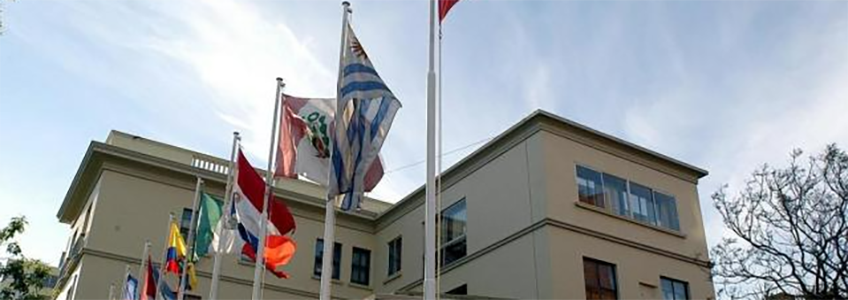The Iberoamerican University Foundation (FUNIBER), from its offices in Argentina and Uruguay, has participated in the Ciclo, Países, Acuerdos y Herramientas Digitales (Cycle, Countries, Agreements, and Digital Tools) of the Latin American Integration Association (ALADI) for trade between member countries.
Prior to the event, the Iberamerican University Foundation (FUNIBER), based in Uruguay, signed an inter-institutional cooperation agreement with the Latin American Integration Association (ALADI).
ALADI is an international organization whose functions include the promotion and regulation of reciprocal trade, economic complementation, and the development of cooperation actions. It currently has 13 member countries and is an open agreement, which is why more countries may join.
The conferences were held online through the Zoom platform and were attended by Dr. Sergio Abreu, Mariano Kestelboim, Alejandro Bonilla, Sebastián Villano, Laura Tuero, Mónica Ayala, Juliana Imoberdoff on behalf of FUNIBER Argentina, and Alejandra Lima on behalf of FUNIBER Uruguay.
During the meeting, emphasis was placed on the lack of knowledge of ALADI by member states and countries that are not yet members. For this reason, a space for improvement was discussed to take advantage of the benefits for taxes and tariff improvements, as well as opportunities for relations among member countries.
ALADI publishes reports that provide an outlook for a better insertion in the region’s market. The global context of the COVID-19 pandemic was also discussed, which had a negative impact on trade, production, and more than 30 million jobs lost. The lesson learned from this stage is the importance of internalization in value chains. Economies of scale are increasingly important in the use of ICTs, and we must therefore renew our bet on ALADI and the country cycle, used as a means to generate better jobs and income distribution.
